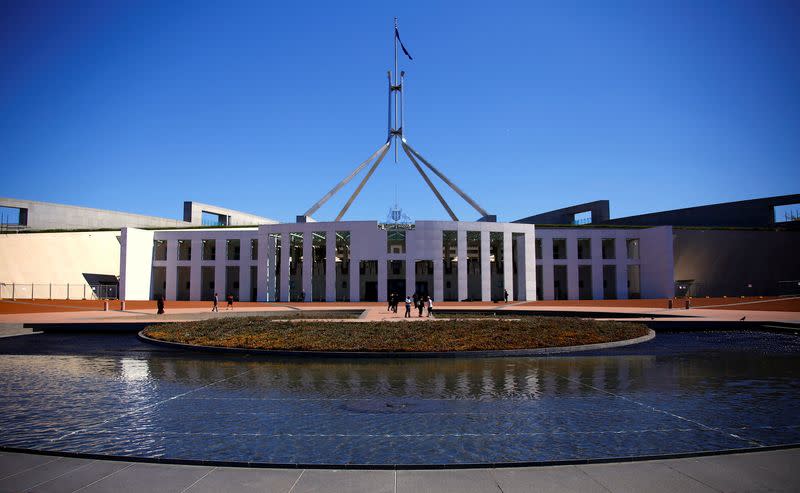Australia to boast budget surplus, eye inflation's earlier return to target

By Stella Qiu and Wayne Cole
SYDNEY (Reuters) - Australia's government is expected to boast another surplus in its annual budget due on Tuesday, courtesy of strong employment and high commodity prices, giving it cash to afford more cost of living relief and industry incentives.
Ahead of his third budget since the centre-left Labor government won power in 2022, Treasurer Jim Chalmers predicted inflation could ease to the central bank's 2-3% target band by the end of this year, helped by measures Canberra plans to introduce to cool prices.
That would be a welcome surprise for the Reserve Bank of Australia (RBA), which does not expect inflation to return to target until late 2025.
"I think it is cost of living relief that they're assuming kicks in to lower inflation," said Shane Oliver, chief economist at AMP. "They're not making any allowance for people possibly spending more on the back of that relief. Technically it might be alright, but it does run the risk of ignoring the spending effect."
The centrepiece of the budget would be an already legislated income tax cut for every Australian taxpayer worth A$395 billion ($260.58 billion) over 10 years. Chalmers is also likely to renew energy rebates that were set to expire this year.
The budget will feature tax incentives for Labor's Future Made in Australia subsidy programme to help domestic industries compete globally, as well as more defence funding and measures to cut costs for higher education.
Chalmers is under pressure to curb spending to avoid stirring up inflation, but he has defended the measures as "unavoidable" and "warranted". Australians are due to head to polls again by early next year.
Three of the big four Australian banks expect the government to record a back-to-back surplus in the fiscal year ended June 30, a feat not achieved since the early 2000s.
ANZ predicted a small surplus of A$4.5 billion for the 12-months ending June this year, while Commonwealth Bank of Australia tipped a surplus of a A$15 billion.
"The Budget will focus on providing targeted cost of living support and securing Australia's economic and strategic future," said Pat Bustamante, a senior economist at Westpac.
"This comes with a price tag that will see the cumulative budget position deteriorate and the budget tip into the red."
Westpac expects a A$9.4 billion surplus this year, though that will likely swing to a deficit of $10.1 billion in 2024/25 in part as the cost of past borrowing mounts.
($1 = 1.5158 Australian dollars)
(Reporting by Stella Qiu and Wayne Cole; Editing by Sam Holmes)


